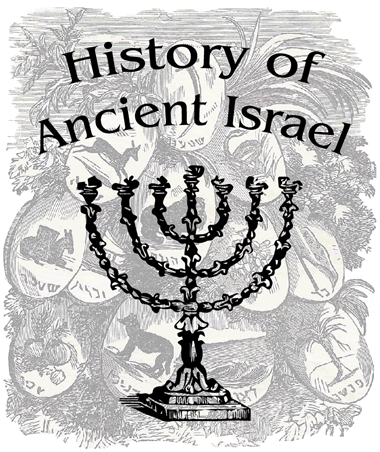 |
| Ancient Israel Educational Materials |
|---|
| www.studenthandouts.com > World History > Ancient Israel |
| Ancient Israel Worksheets | Ancient Israel Books and Films |
| Ancient Israel Study Games | Ancient Israel Maps and Pictures |
| Ancient Israel Miscellany | Ancient Israel Outlines and PowerPoints |
Life in ancient Israel was shaped by a combination of geographical, historical, and religious factors. The region of ancient Israel, located in the eastern Mediterranean, played a central role in the development of monotheistic religions, including Judaism, Christianity, and Islam. Here are some key aspects of life in ancient Israel. Geography: Ancient Israel was situated in the Levant, a region known for its diverse landscapes, including coastal plains, fertile valleys, arid deserts, and mountainous terrain. The Jordan River and the Sea of Galilee were significant geographical features.
Geography: Ancient Israel was situated in the Levant, a region known for its diverse landscapes, including coastal plains, fertile valleys, arid deserts, and mountainous terrain. The Jordan River and the Sea of Galilee were significant geographical features.Agriculture: Agriculture was the primary occupation for most ancient Israelites. They cultivated crops such as wheat, barley, grapes, olives, and figs. Terracing was used to make hilly terrain suitable for farming. Religion: Ancient Israel was the birthplace of monotheism--the belief in one god (Yahweh). The Israelites followed the monotheistic religion of Judaism, with a central focus on the worship of Yahweh (the god of Abraham). Religious life included rituals, sacrifices, and adherence to the Torah (the Jewish sacred text). Family and Social Structure: The family was the basic unit of society. It was patriarchal, with the eldest male as the head of the household. Families were organized into clans, tribes, and, according to biblical tradition, the twelve tribes of Israel. Law and Justice: The Israelites followed a legal system based on religious principles. The Torah contained the Ten Commandments and a comprehensive legal code. Judges and elders administered justice at local levels. Kingship: At various points in its history, ancient Israel was ruled by kings, beginning with King Saul and continuing with King David and King Solomon. The period of the monarchy marked a transition from a tribal confederation to a centralized kingdom. Prophets: Prophets played a significant role in ancient Israelite society. They were religious leaders and moral guides who conveyed Yahweh's messages and often challenged the rulers and society to uphold justice and righteousness. Trade and Commerce: Israel's location at the crossroads of trade routes facilitated commerce with neighboring regions, including Egypt, Mesopotamia, and the Mediterranean world. Trade was essential for acquiring goods not locally available. Cultural Expressions: Ancient Israel produced religious texts, poetry, and historical narratives, such as the Psalms, the Book of Proverbs, and the historical books of the Hebrew Bible (Old Testament). Foreign Rule: Over the centuries, ancient Israel experienced foreign rule and conquest by various empires, including the Assyrians, Babylonians, Persians, Greeks, and Romans. These periods of foreign domination brought changes to political, cultural, and religious life. Diaspora: The dispersion of Jewish communities outside the homeland, known as the Jewish diaspora, began with the Babylonian exile and continued through subsequent centuries. Jewish communities formed in different parts of the world, maintaining their religious and cultural identity. Conflict and Wars: Ancient Israel was frequently involved in conflicts with neighboring peoples, including the Philistines, Canaanites, and various Mesopotamian empires. These conflicts often had religious and territorial dimensions. Synagogue and Temple: Religious worship took place in synagogues and, during certain periods, in the First and Second Temples in Jerusalem. The Temple was a central religious and cultural institution. Life in ancient Israel was deeply influenced by its religious beliefs, agricultural practices, and interactions with neighboring cultures. It was a society with a rich literary and religious heritage that continues to influence world history and culture to this day through the legacy of Judaism and its contributions to the development of Christianity and Islam. |
| www.studenthandouts.com > World History > Ancient Israel |






